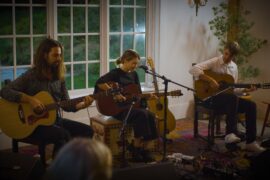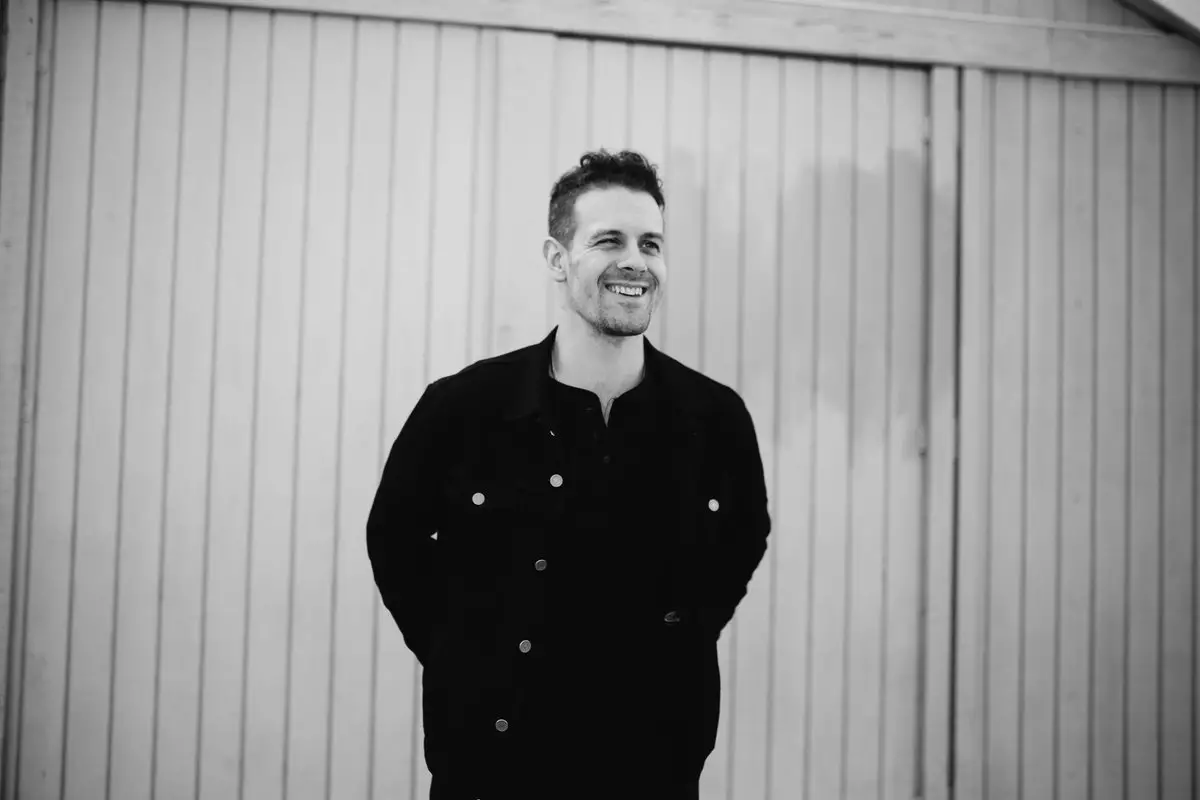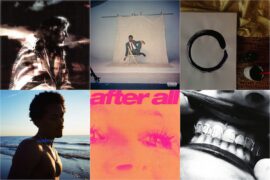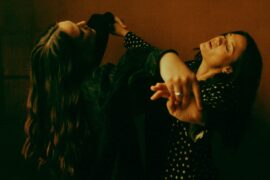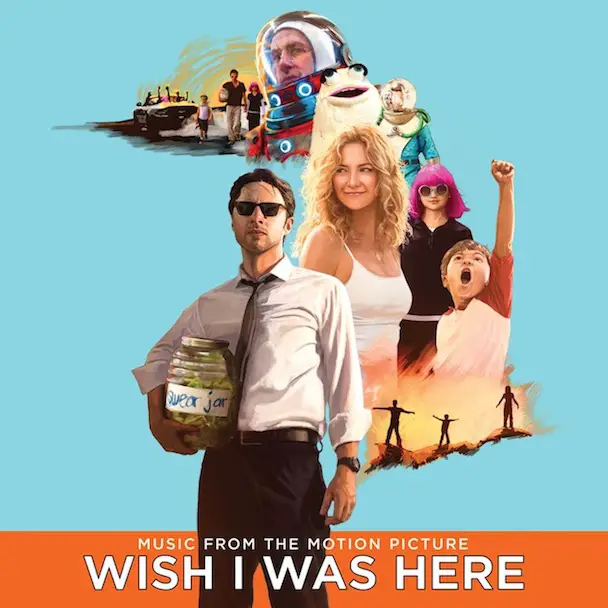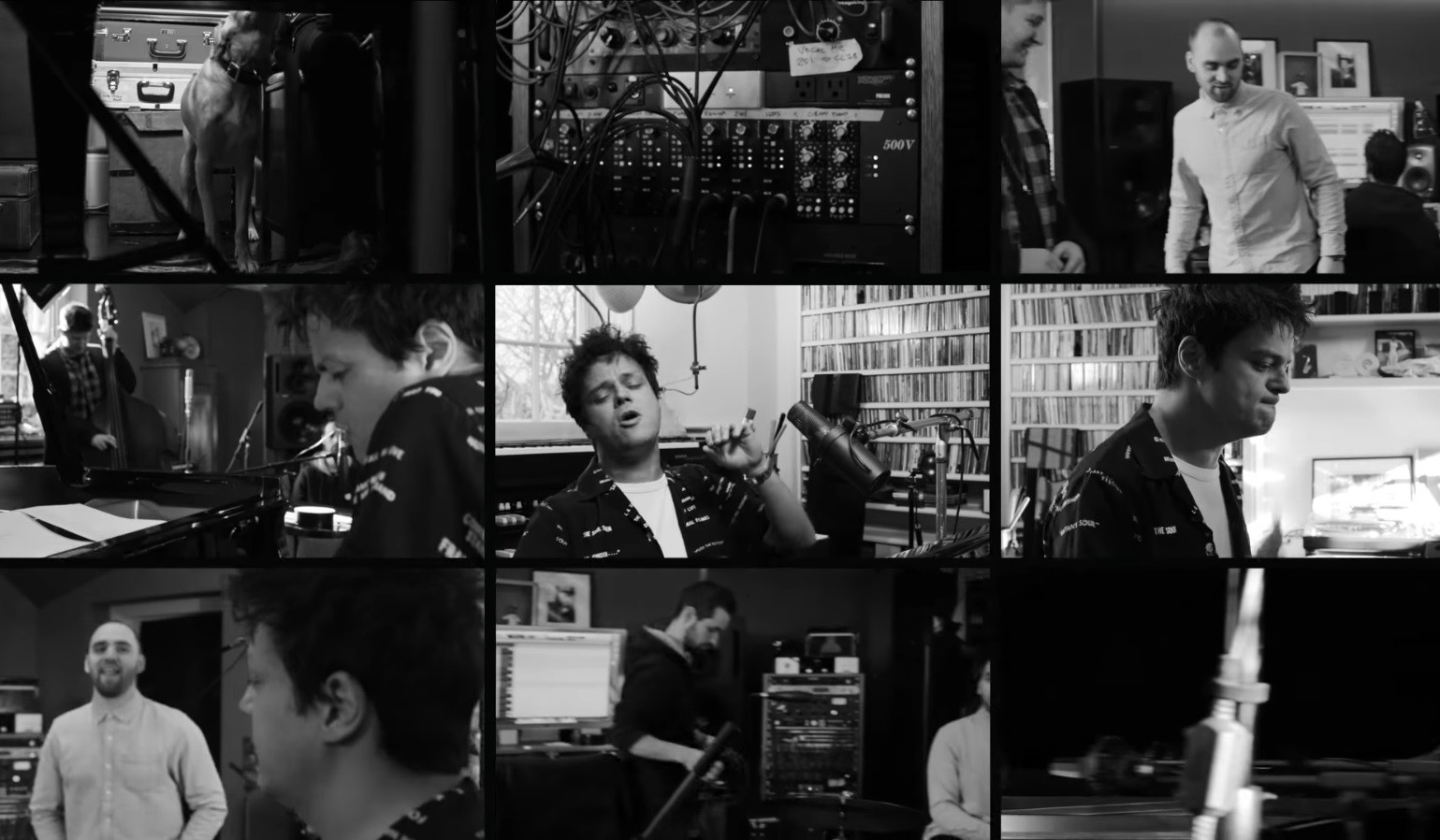Adam Bosarge reflects on the internet success of ‘Structures Without Rooms’ and analyses the processes, tribulations, and occasionally, the philosophies behind rallying with his two following 2024 releases, ‘Familiar Shores’ and ‘A Bent Wing on Curved Light.’
‘Structures Without Rooms’ – Adam Bosarge
What lurks in the most umbrous caverns, or dwells in the most distant vertices of the YouTube algorithm are pure mystery.
Amidst the nonsense, the gaming videos with an eerie lack of commentary, the video essays forgotten despite the hours of effort behind them, occasionally, a surprise rears. A jewel occasionally emerges from its surroundings, glowing just too bright to be ignored. This was Structures Without Rooms, Adam Bosarge’s 2023 release.
The YouTube algorithm’s preference for this album, Bosarge describes repeatedly as a “blessing.” Truthfully, it is also a blessing of a listening experience. Its coalescing of the chamber, the orchestral, and the electrical to form a market of constantly evolving, rhythmic, dense, harmonically gorgeous, and liberally varied offerings is a masterful, bountiful, enchanting delight, and a marquee statement of a release. It probably deserves the accolade of being one of the most exceptional instrumental releases of last year.
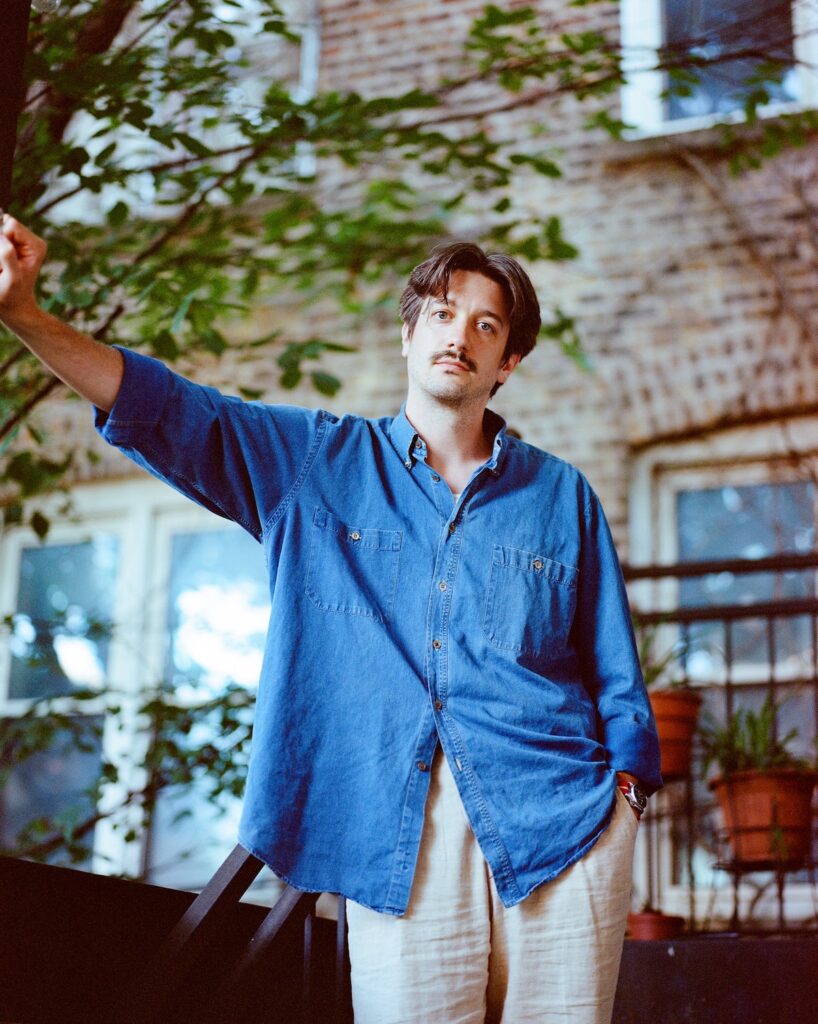
Bosarge has not let this cloud his judgement, but, naturally, it is a success story that has opened his eyes in ways.
“It totally lowered the stakes… It’s no big deal. Just do it. Just finish something and put it on YouTube,” he tells Atwood Magazine. This sense of unreservedness is perhaps one reason behind Bosarge having already released two projects this year: Familiar Shores, a single, flowing movement of music, followed by A Bent Wing on Curved Light, which is structured more similarly to Structures Without Rooms.
Has previous success altered, or even impeded Bosarge’s compositional method, aims, or sound when approaching his 2024 work? Are these releases plagued by the justifiable anxiety of feeling like one suddenly has the expectations of an audience to satisfy? Or is it still a pure pursuit of making what one wants to make regardless?
“Definitely the latter,” states Bosarge. “I’m trying to think of how old I was when I really started Structures Without Rooms. I was like, thirty one or thirty two. So, at that point, I kind of wasn’t figuring it out anymore… But upon releasing Structures Without Rooms, it was just total clarity of what an Adam Bosarge album sounds like…”
“More recent things are kind of just me… I don’t have anything to prove,” he continues. “I’m not trying to further my career or anything, it’s just what comes out.”
This sense of freedom, and pure, unfiltered self-actualisation are very much tangible in both Familiar Shores and A Bent Wing on Curved Light; they are releases that mark logical evolutions on from Structures Without Rooms. They bear the same, engrossing elements of the 2023 release, but also have their own proud identities.
Whether it is a positive or a negative, a mystifying aspect of the lucky draw of the YouTube algorithm is the manner in which it can leave any blessed creator faceless beyond their output.
As Bosarge himself rhetorically puts it, “Who actually made this album that looks like it’s a DS game and then you click it and it’s like weird jazz fusion?”
At the very least, we can say that this interview lifts that algorithmic veil away from one Adam Bosarge.
— —
:: connect with Adam Bosarge here ::

A CONVERSATION WITH ADAM BOSARGE
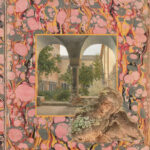
Atwood Magazine: How would you describe your sound, personally?
Adam Bosarge: It was kind of a surprise when I put it on YouTube… the first comments were like: ‘I don’t even know if I would describe this as ambient music. And I was like “hmm.” I think of like Brian Eno and William Basinski and classic, evolving soundscapes and I was like, I think of myself as kind of maximalist, I don’t know. I guess like… calm, maximalist electronic music.
I've gone through your website. I know that definitely somewhere you mention an emphasis on drama in your music. Is it about narrative?
Adam Bosarge: I can’t say I’m a huge Broadway musical guy, but if left to my own devices, the songs just end up very kind of dramatic with… Highs and lows. For whatever reason, that just is where I tend to go when I’m writing it. I’ve always felt that I was pretty bad at making music that sounded cool. Someone else had described some song I had made a long time ago as really dramatic and that’s what they liked about it. And I was just like – I guess it is. I don’t think it’s like a unique thing necessarily. Like, I feel like The Beatles were a really dramatic band. “She’s Leaving Home” is not a pop song in any sense of the word. I think a lot of the music that I grew up really listening to was a lot of film scores and contemporary classical music.
How different a process is that – writing for film – compared to releasing “just” an album of music?
Adam Bosarge: For me it feels very different. The discipline is different. What you’re trying to achieve is different, but I’m still going to logic. I’m still playing everything in on my cheap MIDI keyboard and using the same string libraries… My whole goal on a movie is to not really resolve any chords at any point because it’s a 90-minute movie.
[For Familiar Shores] I took Kiki’s Delivery Service and put it in my DAW and just was like, act like you’re scoring this… if you synced up familiar shores with Kiki’s Delivery Service some moments might make sense, some wouldn’t. There’s a part where everything breaks and it gets all quiet in the middle of Familiar Shores. That’s when she falls asleep on a train on her way to the big city.

I find that both Familiar Shores and A Bent Wing on Curved Light have similar endings, in that you've got a lot of really interesting, really cool layers, and then in the final five minutes it kind of either all dissipates away, or it all comes together into something a bit more slower moving. Is that because that also matches up to whatever Kiki was doing at that point? Is it something to do with the kind of statement you want?
Adam Bosarge: When I’m trying to think of the overall structure of a piece of music… it can’t be totally harmonically clean in the beginning, because then there’s nothing for the music to kind of work out. I guess the two ways I could have ended Familiar Shores are to have it really hit the ending, and then the resolution is that it’s over, or I can have it end up in that place of resolution. I don’t like it when movies just end at the end of the climax. I’m like: come on! I need to see the Shakespearean thing! I need to see the two guys from the beginning talking about the problem; I need to see them talking about how there’s no problem anymore! I have that urge, and then also I just sonically really like the vibe of stacking everything up into a big mess and then shattering it into a nice stillness.
How would you describe what your process is like? How does it evolve?
Adam Bosarge: I wish I could say always started with melody… Half the time, I feel like I’m doing this backwards. This is taking so long and this is so hard because you don’t have a melody. And now you’ve got all of these really difficult harmonic and rhythmic things, and now you have to write a melody to that… I always try and do it first thing in the morning and I always just try and tell myself: hit two minutes. Doesn’t matter how. Every day, right… I have a lot of Logic files on my computer where I’m like – this isn’t a musical idea. This is an arrangement idea…
I’m sure everyone’s experienced it, who’s written music, you just kind of want to hit a groove and then you finally looked up and it’s been hours and you’ve written a tonne of music. That’s kind of what Familiar Shores was like? That was supposed to be a track on A Bent Wing on Curved Light. I basically had those first chords arranged out on the vibraphone and marimba… And then one day it just broke and I wrote 12 minutes.
One thing about Familiar Shores. You say it's travel music.
Adam Bosarge: I kind of tried to call my shot on the vibe and that was more of a challenge: ‘you’ve made film scores where people want a vibe, and you delivered. Can you deliver that when you’re the one asking for it from yourself?’ Structures Without Rooms and A Bent Wing on Curved Light – I think of those as morning strolls… Familiar Shores I wanted to be more dramatic… It’s still in my mind, a morning album, but it was like morning at the airport… There’s a section of Familiar Shores, when I was working on it, I called it: ‘Welcome to Delfino Plaza, Mr. Bond.’ There’s just more of a dramatic sense of going somewhere? Being out of your element, being somewhere strange? And the first act of Kiki’s Delivery Service is her leaving home and finding her city where she’s going to be the witch… But which Bond do you imagine? That’s the real question.
Around fourteen minutes into Familiar Shores, there's a big bassy piano and some percussion accents coming in. It reminded me of the height of American minimalism. Is minimalism a source of inspiration at all?
Adam Bosarge: Inescapable. I mean Steve Reich, he’s very understandable. He’ll have an arrangement and it’s very minimal and it will go on for a while, so you can listen to it and really get your mind into the crunching gears of what’s happening there… Philip Glass is inescapable; his harmonic sense, even just like the way he will use a flat 7 chord. The other one is the American composer, John Adams… I feel Familiar Shores is quite indebted to John Adams… The Bossa Nova composer Antônio Carlos Jobim… The way, especially Jobim on a Bossa Nova album where he’s singing songs, will then just go on kind of an orchestral odyssey for seven minutes.
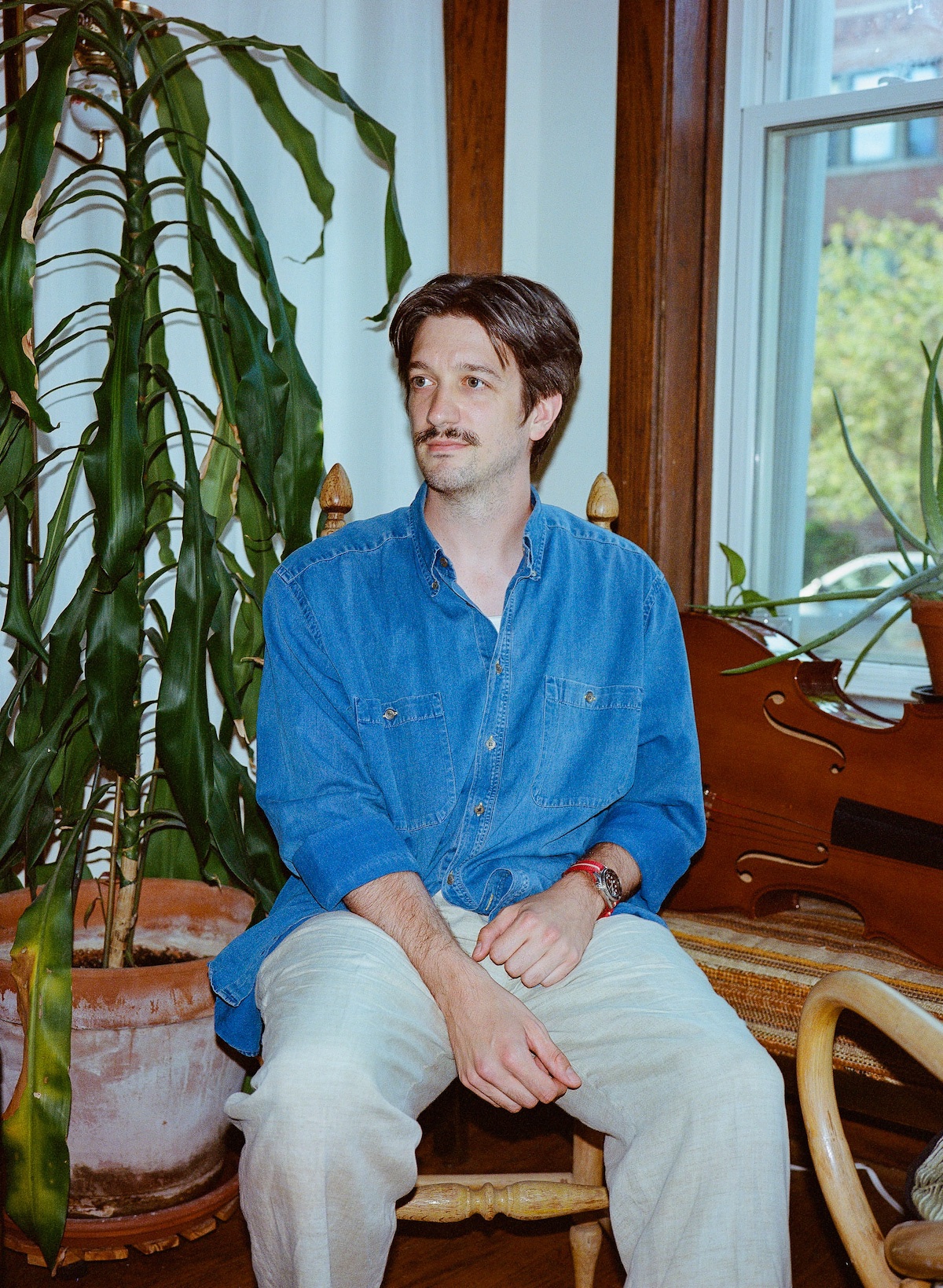
Do you feel yourself on occasion risking wandering off with the stuff you're writing, and that it needs more of an imposed direction?
Adam Bosarge: No, not really. Familiar Shores was really just ‘hit the ground running, and don’t stop’, and then I was done. I always think of the first half of any creative pursuit as like the exploratory half, where you are expanding as much as you can, writing as much as you can. And then the second-half is trimming it all down and distilling it. With A Bent Wing on Curved Light, that one had way more cut songs than Structures Without Rooms. It was way more like: write a bunch of music, and then find the album. Even on a micro sense: I wrote a big messy thing. What’s the idea of it? OK, we can lose that. We can lose that. This arrangement is way too dense. You cannot hear the melody. You have 3 melodies going at once. Pick one, things like that. So, I think that is where most of the restriction comes from.
With A Bent Wing on Curved Light, I love the way that synths are handled. Is it quite a long thought process or is it just quite an innate decision when you decide on which synth sound to use?
Adam Bosarge: Oh everything is as quickly as I can possibly decide it. I’m pretty annoyed with myself if [a song takes] more than one sitting. There’s a lot of going back and tweaking after that initial composition process, but I always want to have something that’s on its feet. I try to think of these songs as like my morning writing exercise. And if I sit on something too long? I don’t want it to sound painstaking. I don’t want it to feel nervous when you’re listening to it.
From Structures Without Rooms, I really love the way you handled percussive elements in that… on “blanked out,” about halfway through it, everything kind of drops out and then it's a piano and these really rhythmic percussion bits. That's one of my favourite points in that whole album. Come forward to A Bent Wing on Curved Light and, to my joy, I see it happening again. The track “last spring's nests,” which I found to be really grounded by a really strong percussive pattern. How important for you is the handling of percussion when you're layering everything?
Adam Bosarge: If your percussion is all sorted out, you don’t need that much else. It’s like, if you have a groove and it sounds good and it sounds cool, you kind of can just be like, alright, let’s stick some interesting chords over that, but the personality of this section is the percussion. That’s something particular to electronic music. On Structures Without Rooms, I was maybe a little more on my back foot with percussion; I’m not a drummer and so it’s always intimidating to write.
These are the two main things left that I wanted to talk about. The first thing is your titling. I'm talking more specifically about Structures Without Rooms and A Bent Wing on Curved Light. Are they dismantled poems?
Adam Bosarge: It seemed like an easier way to name a bunch of songs… It was so easy on Structures Without Rooms; I think the music came out just as easily as all this extra stuff. A Bent Wing on Curved Light had like, thirty album title ideas, thirty album covers candidates… Once I started doing it, I was like: ‘ohh, it works because the songs flow together’… They’re both 2 sentences, but on Structures Without Rooms, the first one is a lot longer. If I ever have this pressed to vinyl, I want the break to be right in the middle… They’re kind of opposites in the way that I think this poem on Structures Without Rooms is a very poetic way to describe something extremely simple, and A Bent Wing on Curved Light [is] more of a complex poetic image.
Do you feel comfortable saying what it's trying to say?
Adam Bosarge: There’s this book. I have it here. Gaston Bachelard’s The Poetics of Space. It’s basically this poetic and philosophical, book length essay, or series of essays on like, the psychology, the psychological manifestation, the psychological effect of living in houses and what they mean to us.
I think about that a lot. I don’t know if you’ve ever had the feeling of walking to a street corner or something, or being in a certain part of a building, and just like, having something occur to you where it’s like: I was listening to this song or this podcast last time I was here… ‘wandering in and around the house around the back of your mind,’ that’s just: What is your subconscious house? It’s this kind of combination of all the houses you’ve lived in, or all the spaces you’ve occupied. Like, what do you keep there?… That’s how I feel about this album. It feels like music for that morning stroll, but your morning stroll back to your psyche.

And the artwork. I think it's always so gorgeous. Where does it come from? How do you decide on the things to collage together?
Adam Bosarge: Structures Without Rooms was all things I already had [thanks to] various interests – what images do I have on my computer already? For whatever nerdy reason, I’m really interested in late 1700s science history, and that pink marbled paper on Structures Without Rooms is from… It’s from a book, the personal account of one of the guys who observed the transit of Venus. I think it was 1761. It was the guy who went to Siberia to get that observation. And I was like, alright, I have his voyage to Siberia PDF on my computer. What else have I got? It set the language…
For Familiar Shores, I wanted it to look slightly different, altered in a bit with that Japanese painting of the cranes. the consideration specifically I had on A Bent Wing on Curved Light was, for whatever reason in my mind, it was more of a nature album than a buildings album… And I kind of like that there’s a red, blue and a green. I think they look good next to each other… I know on Familiar Shores it was the most ridiculous PDF I found on archive.org of not even a book, like an article about the Pope visiting their town.
— —
:: connect with Adam Bosarge here ::
— — — —
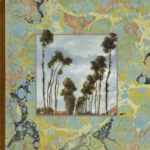
Connect to Adam Bosarge on
YouTube, Bandcamp, Web, Instagram
Discover new music on Atwood Magazine
© courtesy of the artist
:: Stream Adam Bosarge ::

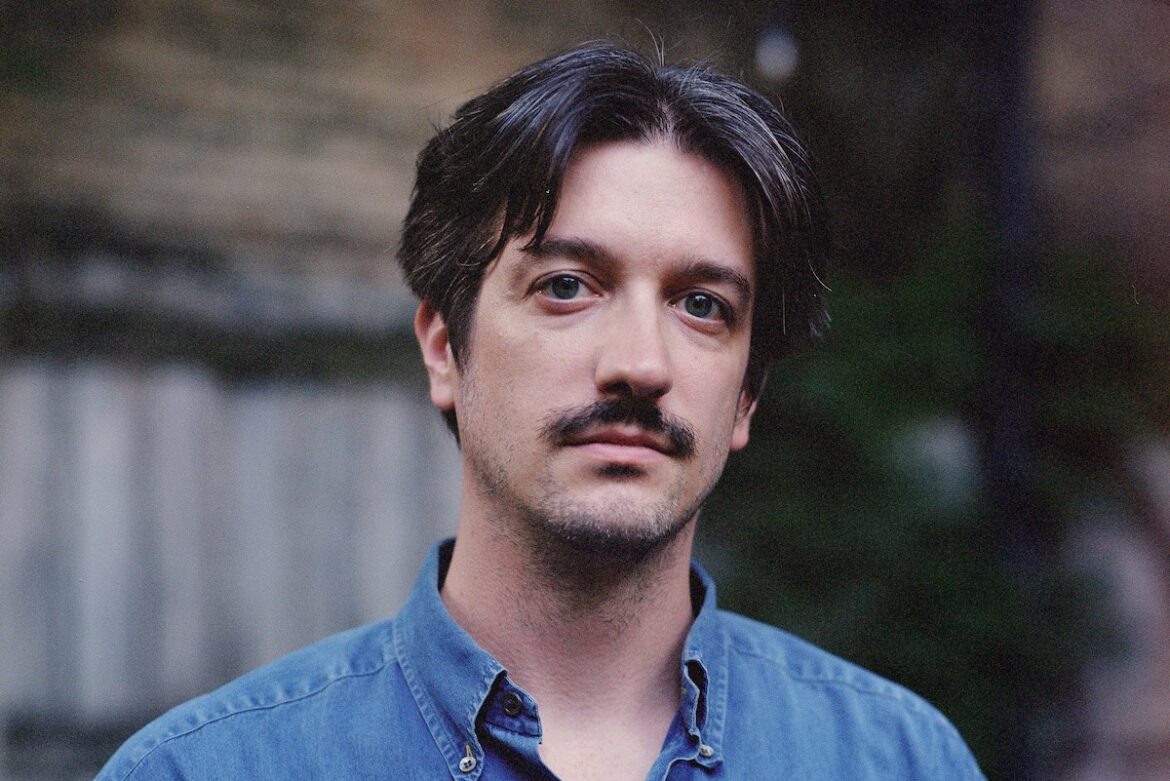
 © courtesy of the artist
© courtesy of the artist